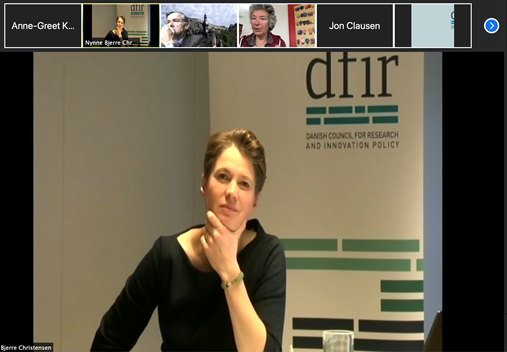Chair Corien Prins contributed to the DFiR-Conference 2020
On Tuesday 24 November 2020, the Danish Council for Research and Innovation Policy organized a virtual conference on science advice in the current Covid-19 crisis. The organization had invited speakers from EU organizations, the USA National Institutes of Health and the WRR to share their thoughts and experiences. In her contribution WRR-chair Corien Prins reflected on the use of scientific knowledge and advice in The Netherlands during the Covid-19 crisis.
Four characteristics of the Covid-19 crisis
Prins identified four characteristics of the Covid-19 crisis:
- This crisis is not a sprint but a marathon, meaning there appears to be no such thing as ‘state of the art knowledge’.
- This crisis started out as a health crisis, but soon affected society in a much broader manner, meaning government policy is to be supported by interdisciplinary scientific advice.
- This is not a Dutch, a Danish, German or Italian crisis. The whole world has to deal with similar challenges at the very same time. How then to explain to the broader public that the same scientific insights result in variation as regards national policy?
- This crisis positioned science advisors in the spotlight. But how, as scientists, use this spotlight and communicate with the public?
Dutch experience
Prins also shared two lessons based on the Dutch experience. The first lesson is that a scientific advisor needs to understand the importance of a broad perspective on transparency and its role for building trust. More and more it appears crucial to explain the process of scientific progress, and acknowledge it in our work as scientific advisor. Transparency is more than merely being visible for the general public. It implies the ability to explain and therefore we need to listen to and learn from society. Second: in a case of a marathon, the established science advisory infrastructure and its members need to be flexible and able to encompass and understand all relevant expertise, including expertise outside the domain of health science.
